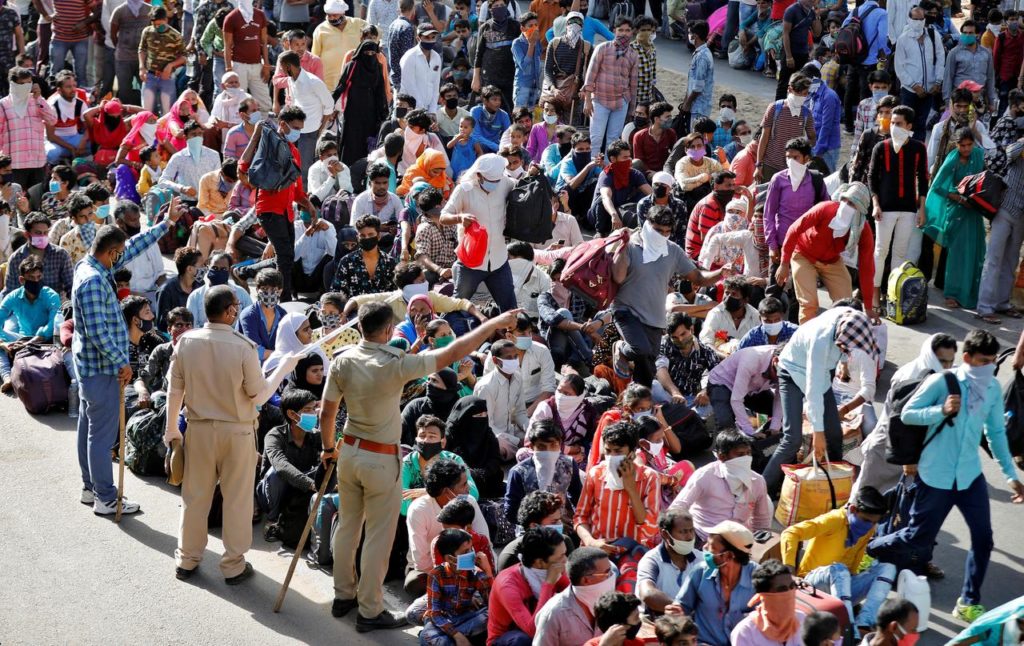ILO Warns Indian States On Scrapping Workers’ Rights
May 14, 2020 | Pratirodh Bureau
Policemen guide migrant workers and their families as they wait for transport to reach a railway station to board trains to their home state of Uttar Pradesh, after a limited reopening of India's giant rail network following a nearly seven-week lockdown to slow the spreading of the coronavirus disease in Ahmedabad on May 14, 2020
The U.N. labour agency urged Indian states thinking of relaxing workers’ rights to help industry survive the coronavirus to consult workers first as a union linked to India’s ruling party said it would protest the planned moves.
Six states, including most populous Uttar Pradesh and the commercial hub of Gujarat, have said they plan to suspend some laws on wages and working hours to help industry recover from a seven-week lockdown.
“Certain states in India are moving towards relaxing labour laws with a view to revitalize the economy from the impact of COVID-19,” the U.N.’s International Labour Organisation said in an emailed statement on Thursday.
“Such amendments should emanate from tripartite consultation involving the government, the workers’ and the employers’ organisations and be compliant with the international labour standards.”
The states, many of which are ruled by the Bharatiya Janata Party led by Narendra Modi, say the changes are needed to kickstart the economy reeling under the impact of the shutdown.
“Economic growth and industrial activity have been hit hard by the lockdown because of the COVID-19 outbreak,” a senior Gujarat government official told Reuters.
“The relaxations in labour laws are needed to attract new industries to Gujarat and to create employment opportunities.”
In April, the government in Gujarat allowed factories to increase workers’ shifts from eight to 12 hours.
There is also a proposal to increase the threshold of the number of workers employed for factories to need prior government permission for layoffs, retrenchment and closure, from 100 to 300.
But the proposals have angered trade unions, including the Bharatiya Mazdoor Sangh, the labour wing of the Rashtriya Swayamsevak Sangh, itself the ideological parent of Modi’s ruling party.
“Many other states are readying to follow the trend. This is unheard in history and is rare even in most undemocratic countries,” general secretary Virjesh Upadhyay said in a statement, urging people to demonstrate on May 20.
